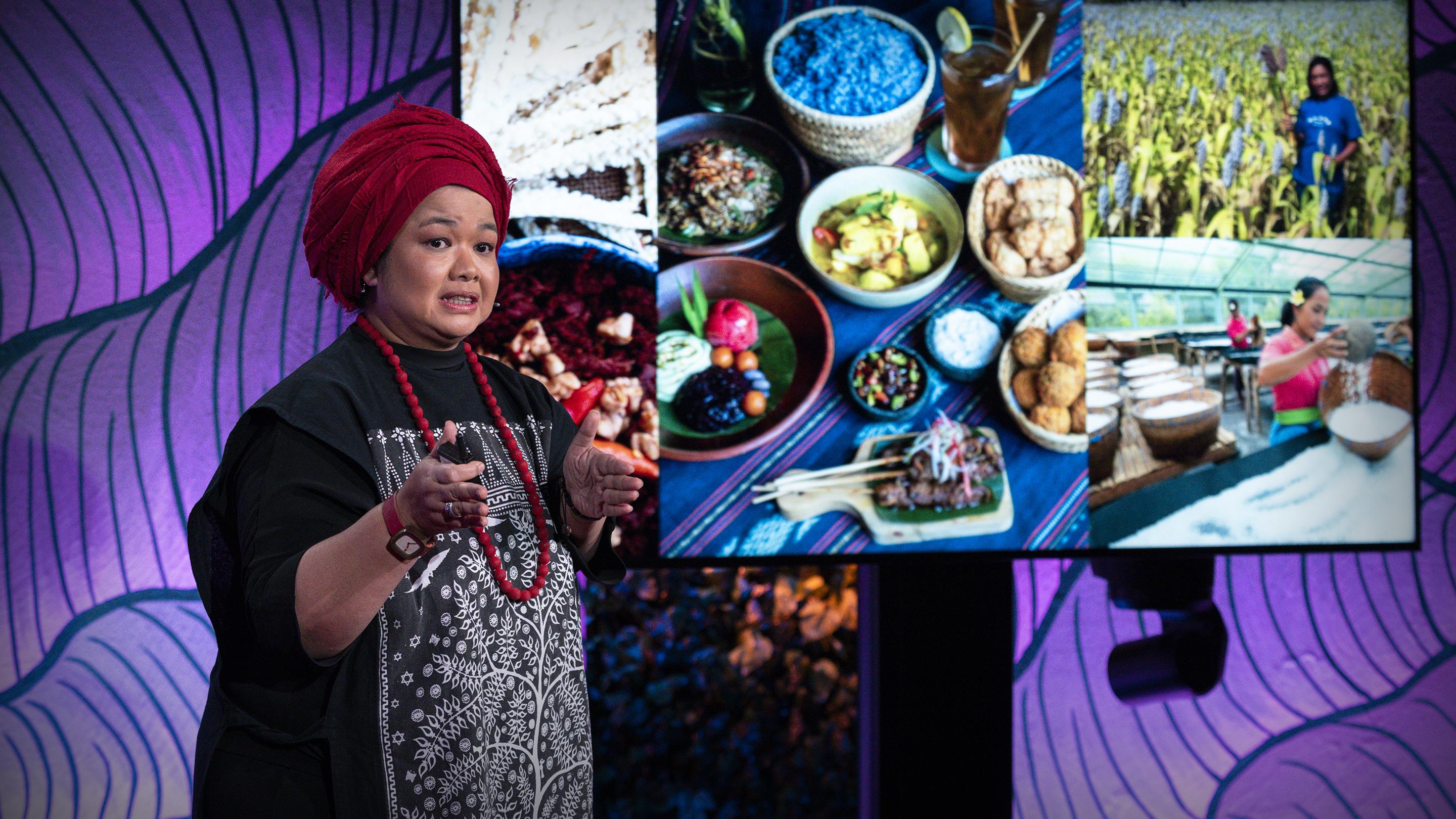
The foods humanity forgot — and how we're bringing them back | Helianti Hilman

TED Talks Daily
Key Insights
Why does Indonesia face a food policy crisis despite being one of the most fertile places on Earth?
Indonesia's food policy crisis stems from a focus on monoculture, particularly rice, which has led to environmental degradation, deforestation, and poor nutrition among the population. This neglects the country's rich food biodiversity.
What are the key components of Indonesia's food biodiversity?
Indonesia boasts over 1,200 grains, 600 edible roots, 550 fruits, and 1,600 seafood varieties, all found across its diverse landscapes, from rainforests to mangroves.
How does Javara aim to address Indonesia's food policy crisis?
Javara seeks to revive forgotten food biodiversity to improve the livelihoods of indigenous and smallholder farmers while offering consumers healthier, ecological products.
What are the benefits of shifting from monoculture to food biodiversity in Indonesia?
A shift to food biodiversity can provide better nutrition, reduce environmental harm, and improve economic conditions for farmers. It can also enhance community resilience and health.
How does food biodiversity contribute to community well-being in Indonesia?
Communities that cultivate diverse food gardens can reduce grocery costs by 30%, increase household income by 20%, improve school attendance, and boost student grades, demonstrating the direct impact of nutrition on community health.
Why is it important to include food culture education in Indonesia's curriculum?
Food culture education can help children understand their food's origins, appreciate local biodiversity, and foster a connection between food, nutrition, and sustainability, addressing both nutritional and environmental challenges.
What is the significance of Owie or Greater Yum in Indonesia's food biodiversity?
Owie is a sustainable staple food that can grow under tree shade, yield high harvests, and doesn't require deforestation or soil poisoning, making it an ideal crop for preserving the environment while providing nutrition.
How does Indonesia's current food policy impact its indigenous communities?
Indigenous communities, despite being remote, are often well-fed and healthy due to their reliance on local food biodiversity. However, government policies often overlook this, focusing instead on monoculture, which can harm their traditional ways of life.
What role does sugar diversity play in Indonesia's food biodiversity?
Indonesia has several native sugar sources, like coconut, orangutans, lontar, and nipah, which are low-glycemic and sustainable. These sugars provide slow-release energy and can be productive for at least 50 years, contrasting with the government's focus on sugarcane plantations.
Why does Helianti Hilman believe there is a food identity crisis in Indonesia?
Hilman argues that Indonesians have lost their connection to their food culture and nature, leading to a crisis of identity. Reviving heritage foods and educating people about their nutritional and cultural value can help address this.
Chapters
- Indonesia has over 17,000 islands with diverse landscapes.
- The country has a rich food biodiversity with over 1,200 grains, 600 edible roots, 550 fruits, and 1,600 seafood varieties.
- The current food policy crisis is leading to malnutrition and environmental degradation.
Shownotes Transcript
Nutritious crops aren't getting to the people who need nutrition most, even in one of the most fertile places on Earth: Indonesia. Exploring some of the forgotten foods from the country's more than 17,000 islands, food entrepreneur Helianti Hillman explains why centering food policy on biodiversity, rather than monoculture, is the key to healthier people and a healthier planet.
